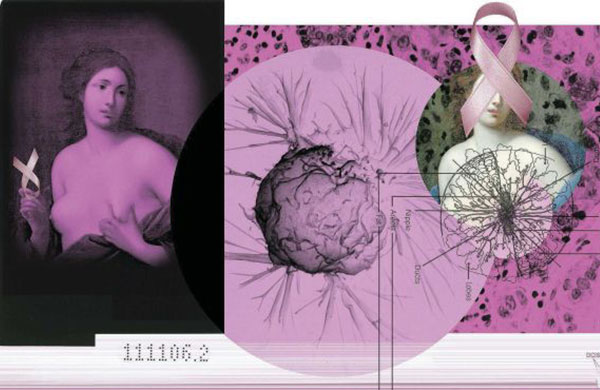 It seems like everywhere we look, we’re being told that we should not eat sugar. However, in small amounts sugar is not bad for most people. The natural fructose sugar found in fruits and vegetables and lactose sugar in milk and dairy is part of a healthy diet. The problem lies with processed foods packed with high amounts of sugar (namely sucrose and high-fructose corn syrup). It’s not just the obvious culprits, like soda, candy, and cakes. Manufacturers have added sugar to many low-calorie, low-fat, foods—some which don’t even taste sweet! Are you consuming more sugar than you realize? Watch for these top sneaky sources of added sugar.
It seems like everywhere we look, we’re being told that we should not eat sugar. However, in small amounts sugar is not bad for most people. The natural fructose sugar found in fruits and vegetables and lactose sugar in milk and dairy is part of a healthy diet. The problem lies with processed foods packed with high amounts of sugar (namely sucrose and high-fructose corn syrup). It’s not just the obvious culprits, like soda, candy, and cakes. Manufacturers have added sugar to many low-calorie, low-fat, foods—some which don’t even taste sweet! Are you consuming more sugar than you realize? Watch for these top sneaky sources of added sugar.
Barbecue Sauce
If you’ve ever made barbecue sauce, you know that the ingredients can include honey, molasses, and brown sugar. Bottled brands can have as many as 11 grams of added sugar per serving. Every time you slather on barbecue sauce, you are adding sugar to your meat, a naturally sugar-free protein. Seasoning meat with a tasty blend of spices, before cooking, is a much better option.
Ketchup
With about one teaspoon of sugar in every one-tablespoon serving, ketchup is a startling source of added sugar. This is where being label savvy really counts because you may not see the word sugar in the ingredients list. Other words such as corn syrup, sorghum, glucose, fructose, lactose, sucrose, galactose and maltose, are all other words for sugar.
Tomato Sauces and Soups
Like ketchup, tomato sauce and tomato soup may also be foods with sugar added. When cooking these from scratch at home, use caramelized onions or carrots for a little sweetness to counter the acidity of the tomatoes. Not all tomato products contain a lot of added sugar, so check the label. Tomato paste, canned diced tomatoes, and salsa are all good additions to a low-sugar diet.
Fruit Juice
 Juice is a concentrated source of sugar and is not very filling or appetite-satisfying. Even if the label says it’s 100% natural juice, and contains only natural sugars, you still may be looking at a hefty serving of sugar in each portion. Instead of a glass of juice, choose fresh fruit.
Juice is a concentrated source of sugar and is not very filling or appetite-satisfying. Even if the label says it’s 100% natural juice, and contains only natural sugars, you still may be looking at a hefty serving of sugar in each portion. Instead of a glass of juice, choose fresh fruit.
Lemonade
Lemons are a wonderful source of antioxidants and vitamin C. Adding a squeeze of lemon to water improves taste and is good for you, but when turned into lemonade, the benefits of lemons may be outweighed by the amount of added sugar needed to sweeten the beverage. If you really want lemonade, make it fresh at home and control the sugars you use.
Sweet Tea
The name alone gives you a good hint that it’s going to be a sugary drink, but people tend to ignore it as a source of added sugar in their diets. Like juice, sweet tea seems to be in a separate category from sugary sodas in the public’s mind. The reality is that sweet tea often contains just as much sugar and just as little nutrition as soda. Both black and green teas are very good for you because of their antioxidants, however it’s important to choose the unsweetened variety.
Fat-Free Salad Dressings
As you navigate the salad dressing aisle, you may think you’re doing yourself a favor by buying a fat-free variety. You’re not, if the company tries to make up for the lack of fat by adding sugar to help boost flavor. When shopping for dressings, look for those with the fewest ingredients and with 3 grams of sugar or less per 2 tablespoon serving. Also look for dressings made with healthy monounsaturated fats, like extra-virgin olive oil.
Vitamin Water
A bottle of vitamin water fuels your body with much more than just a dose of nutrients. That burst of energy you feel upon taking the last sip is just a sugar high in disguise. Some brands of vitamin water contain more than 30 grams of sugar in a 20 ounce bottle. Take some vitamins and drink a glass of water, instead.
Bran Muffins
Many people forgo blueberry and corn muffins, choosing a bland bran muffin because they think they’re healthier. Lack of flavor doesn’t necessarily mean nutritious. Many bran muffins contain 20 grams of sugar.
Dried Fruit
Fruit is naturally sweet, so why would dried fruit contain an excess of added sugar? Don’t turn to logic when debating what snacks to buy; just stick to the facts. There are 30 grams of sugar in many brands of raisins.
Instant Oatmeal
Oatmeal made from scratch is incredibly healthy, unfortunately the same cannot be said for instant oatmeal, which can have 15 grams of sugar or more.
Lots of labels say that things are healthy when they aren’t, that’s why it’s so important to read all of the ingredients. Try to buy items that are low in sugar and contain ingredients that you can pronounce.



